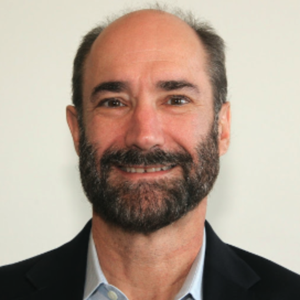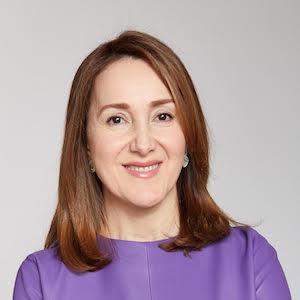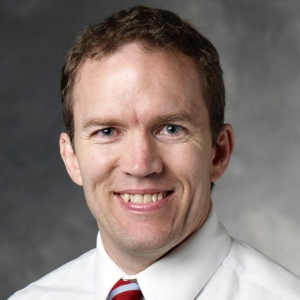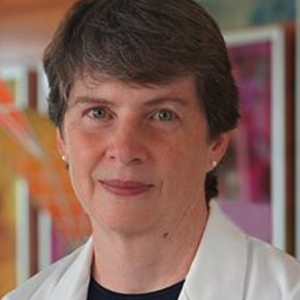Session Abstract – PMWC 2025 Silicon Valley
Track Chair: Edward Esplin, Invitae
- PMWC Award Ceremony
Pioneer Honoree: Michael Snyder, Stanford
Pioneer Honoree: Kári Stefánsson, deCode Genetics
- Keynote
- Kári Stefánsson, deCode Genetics - Genomic & Multiomic Intervention and Prevention of Disease: Colorectal Cancer
- Edward Esplin, Labcorp Genetics - Multi-omic Characterization of Cancer Development and Progression
Chair: Kathleen Barnes, Oxford Nanopore Tech
- Carol Greider, UCSC
- Orit Rozenblatt-Rosen, Genentech
- Emily Leproust, Twist Biosciences - Imaging and Data Strategies in the Human Tumor Atlas Network (HTAN)
- Sean Hanlon, NIH/HTAN
- Advanced Image Analysis and Data Integration in the Human BioMolecular Atlas Program (HuBMAP)
- Pinaki Sarder, University of Florida - Predicting Disease and Managing Health Through Wearables Technologies (PANEL)
Chair: Michael Snyder, Stanford
- Jessilyn Dunn, Duke
- Noosheen Hashemi, January.ai
- Gil Levy, Assuta Ashdod Hospital - Protein Scoring Empowers Improved Disease Risk Prediction
- Cindy Lawley, Olink
- Multi-omic Interrogation of Organ Systems
Chair: Jessilyn Dunn, Duke
- Gloria Pryhuber, University of Rochester Medical Center
- Chenchen Zhu, Stanford
- Assaf Kacen, PromiseBio - Harnessing Single-Cell Genomics for Precision Disease Intervention
- Ben Hindson, 10x Genomics - Vision for Tomorrow: Pioneer Insights (Audience Qs)
Chair: Cindy Lawley, Olink
- Kári Stefánsson, deCode Genetics
Speaker Profile
Biography
Dr. Esplin is board certified in clinical genetics and internal medicine with a focus on using comprehensive germline, ctDNA and solid-tumor somatic genomic information to provide cancer patients precision therapies and clinical trials access. This includes the landmark INTERCEPT study (universal germline testing in patients with all solid-tumor cancers) with the Mayo Clinic, which is expanding to generate and integrate somatic tumor testing for all INTERCEPT patients; the PROCLAIM study demonstrating the utility of universal genetic testing for prostate cancer; and the ARTEMIS study, in collaboration with ECOG-ACRIN and the University of Pennsylvania, integrating coordinated germline, liquid biopsy ctDNA and somatic solid tumor sequencing analysis for precision therapy in all patients with early stage pancreatic cancer. Dr. Esplin completed the MSTP program at UT Southwestern obtaining his MD and PhD in genetics. Clinical genetics training at Stanford University was followed by an NIH-funded Tashia and John Morgridge Endowed Postdoctoral Fellowship under Mike Snyder in the Stanford Department of Genetics, where he maintains an academic appointment. He is a fellow of the American College of Medical Genetics and Genomics (ACMG) and the American College of Physicians (ACP).
Talk
Integrating Germline, Liquid Biopsy and Cancer Tumor Testing
Comprehensive, coordinated integration of germline and somatic tumor genetic testing at the time of diagnosis, in combination with liquid biopsy screening and monitoring for disease, is crucial for efficient personalization of precision therapies and improving the early diagnosis, curative treatment and overall survival of patients with all forms of cancer.
Speaker Profile
Biography
As former Chair of the Department of Genetics at Stanford University School of Medicine and the Director of the Stanford Center for Genomics and Personalized Medicine, Dr. Snyder has led groundbreaking research in the areas of genomics, biotechnology, and personalized health. His extensive research focuses on how genetic variation affects individual health and disease, heralding a new and more effective approach to healthcare. Dr. Snyder’s innovative work utilizes big data generated through high-throughput technologies, including genomics, proteomics, and wearable devices, to monitor disease onset and progression in real time. He is known for his pioneering study where he was both a subject and researcher, which opened new pathways in the understanding of personalized medicine and laid the groundwork for precision health. Professor Snyder's contributions to science have been recognized with numerous awards and honors. He is a member of the American Academy of Arts and Sciences. He has also co-founded 17 biotechnology companies and serves on the board of numerous organizations that aim to revolutionize healthcare through genomics and personalized health strategies. Join us at PMWC 2025 to hear Dr. Snyder speak on the advancements in wearable technologies and multi-omics for disease prevention and early intervention, and to honor his incredible contributions to the field of precision medicine.
Speaker Profile
Biography
Noosheen Hashemi is a tech veteran, entrepreneur, investor, and philanthropist. Noosheen started January AI to harnesses the power of artificial intelligence to predict, prevent, postpone and manage chronic disease. Noosheen also guides a family office that includes diverse investments in over 100 companies and venture capital funds. She is the founder of the HAND Foundation, focused on supporting scholars and organizations that promote discourse and socioeconomic growth among the disenfranchised. She lives in Silicon Valley.
Speaker Profile
Biography
As former Chair of the Department of Genetics at Stanford University School of Medicine and the Director of the Stanford Center for Genomics and Personalized Medicine, Dr. Snyder has led groundbreaking research in the areas of genomics, biotechnology, and personalized health. His extensive research focuses on how genetic variation affects individual health and disease, heralding a new and more effective approach to healthcare. Dr. Snyder’s innovative work utilizes big data generated through high-throughput technologies, including genomics, proteomics, and wearable devices, to monitor disease onset and progression in real time. He is known for his pioneering study where he was both a subject and researcher, which opened new pathways in the understanding of personalized medicine and laid the groundwork for precision health. Professor Snyder's contributions to science have been recognized with numerous awards and honors. He is a member of the American Academy of Arts and Sciences. He has also co-founded 17 biotechnology companies and serves on the board of numerous organizations that aim to revolutionize healthcare through genomics and personalized health strategies. Join us at PMWC 2025 to hear Dr. Snyder speak on the advancements in wearable technologies and multi-omics for disease prevention and early intervention, and to honor his incredible contributions to the field of precision medicine.
Speaker Profile
Biography
Dr. Esplin is board certified in clinical genetics and internal medicine with a focus on using comprehensive germline, ctDNA and solid-tumor somatic genomic information to provide cancer patients precision therapies and clinical trials access. This includes the landmark INTERCEPT study with Mayo Clinic on universal germline testing in all patients with cancer; the PROCLAIM study demonstrating the utility of universal genetic testing for patients with prostate cancer; and ARTEMIS-PC on ctDNA-MRD detection in patients with pancreatic cancer, among others. Dr. Esplin completed the MSTP program at UT Southwestern obtaining his MD and PhD in genetics. Clinical genetics training at Stanford University was followed by an NIH-funded Tashia and John Morgridge Endowed Postdoctoral Fellowship under Mike Snyder in the Stanford Department of Genetics, where he maintains an academic appointment. He is a fellow of the American College of Medical Genetics and Genomics (ACMG) and the American College of Physicians (ACP).
Speaker Profile
Biography
Dr. Jessilyn Dunn is director of the BIG IDEAs Lab at Duke University, whose goal is to detect, treat, and prevent chronic and acute diseases through digital health innovation. She is PI of the CDC-funded CovIdentify study to detect and monitor COVID-19 using mobile health technologies, built on her previous infection detection work in collaboration with DARPA. She is also PI of the open-source software platform for digital biomarker discovery (DBDP.org) supported by the Chan Zuckerberg Initiative. Dr. Dunn was an NIH Big Data to Knowledge (BD2K) Postdoctoral Fellow at Stanford and an NSF Graduate Research Fellow at Georgia Tech and Emory, as well as a visiting scholar at the US Centers for Disease Control and Prevention and the National Cardiovascular Research Institute in Madrid, Spain. Her work has been internationally recognized with media coverage from the NIH Directors Blog to Wired, Time, and US News and World Report.
Speaker Profile
Biography
Dr. Jessilyn Dunn is director of the BIG IDEAs Lab at Duke University, whose goal is to detect, treat, and prevent chronic and acute diseases through digital health innovation. She is PI of the CDC-funded CovIdentify study to detect and monitor COVID-19 using mobile health technologies, built on her previous infection detection work in collaboration with DARPA. She is also PI of the open-source software platform for digital biomarker discovery (DBDP.org) supported by the Chan Zuckerberg Initiative. Dr. Dunn was an NIH Big Data to Knowledge (BD2K) Postdoctoral Fellow at Stanford and an NSF Graduate Research Fellow at Georgia Tech and Emory, as well as a visiting scholar at the US Centers for Disease Control and Prevention and the National Cardiovascular Research Institute in Madrid, Spain. Her work has been internationally recognized with media coverage from the NIH Directors Blog to Wired, Time, and US News and World Report.
Speaker Profile
Biography
Dr. Gloria Pryhuber is a distinguished Professor of Pediatrics in the Division of Neonatology at the University of Rochester Medical Center. She is renowned for her extensive research and expertise in neonatal lung development and injury. Dr. Pryhuber's work primarily focuses on understanding the cellular and molecular mechanisms underlying lung diseases in premature infants, aiming to develop novel therapeutic strategies to improve neonatal outcomes.She has made significant contributions to the field through her research on bronchopulmonary dysplasia (BPD) and other chronic lung diseases affecting newborns. Her studies have been instrumental in elucidating the inflammatory and immune responses that contribute to lung injury and repair in children.Dr. Pryhuber is also actively involved in numerous collaborative research molecular and cellular atlasing initiatives and has published extensively in top-tier biomedical journals. Her dedication to advancing care through research and clinical practice has earned her a prominent position in the medical community.
Talk
Multi-omic Interrogation of Lung
The talk will highlight novel applications of cutting-edge single cell and spatial transcriptomics, highly multi-plexed immunofluorescence, MALDI-mass spectroscopy and hyperspectral SRS microscopy to human pediatric and adult lung disease.
Speaker Profile
Biography
Dr. Kathleen C. Barnes is a genetic epidemiologist with expertise in multiple complex lung and inflammatory diseases. For 30 years her population-based studies have focused on ethnically diverse, family-based and independent populations across the Americas, summarized in 230 publications. She has led multiple international multi-omics projects and is a founding PI in the NHLBI Trans-Omics for Precision Medicine (TOPMed) Project. Originally at Johns Hopkins University (1993-2015) then the University of Colorado (2015-present), she has procured 150K biospecimens from her own research laboratory, and high-throughput, cutting edge multi-omics technologies. She is founding Director of the Colorado Center for Personalized Medicine, was SVP of Population Genomics Health at Tempus Labs (2021-2023), and currently leads Population and Precision Health at Oxford Nanopore Technologies, focused on facilitating the transfer of precision health capabilities into clinical application.
Speaker Profile
Biography
Kári Stefánsson, M.D., Dr. Med. founded deCODE in August 1996. Dr. Stefánsson was previously a professor of Neurology, Neuropathology and Neuroscience at Harvard University and Director of Neuropathology at Beth Israel Hospital in Boston, Massachusetts. From 1983 to 1993, he held faculty positions in Neurology, Neuropathology and Neurosciences at the University of Chicago. Dr. Stefánsson received his M.D. and Dr. Med. from the University of Iceland and is board-certified in neurology and neuropathology in the United States. Dr. Stefansson is recognized as a leading figure in human genetics. He has shaped deCODEs scientific approach and been actively engaged in leading its gene discovery work, serving as senior author on most of the companys publications in major scientific journals.
Speaker Profile
Biography
Kári Stefánsson, M.D., Dr. Med. founded deCODE in August 1996. Dr. Stefánsson was previously a professor of Neurology, Neuropathology and Neuroscience at Harvard University and Director of Neuropathology at Beth Israel Hospital in Boston, Massachusetts. From 1983 to 1993, he held faculty positions in Neurology, Neuropathology and Neurosciences at the University of Chicago. Dr. Stefánsson received his M.D. and Dr. Med. from the University of Iceland and is board-certified in neurology and neuropathology in the United States. Dr. Stefansson is recognized as a leading figure in human genetics. He has shaped deCODEs scientific approach and been actively engaged in leading its gene discovery work, serving as senior author on most of the companys publications in major scientific journals.
Talk
Human diversity begins in the diversity of the sequences of nucleotides in the genome but the environment and interactions between the environment and the sequence contribute significantly. I will discuss how blood proteomics in the context of sequence of the genome allows us to capture environmental impact on human diversity
Speaker Profile
Biography
Dr. Sarder's research interests include the computational fusion of diverse spatial omics data. He serves on the editorial board of the Journal of the American Society of Nephrology and as research co-lead for ASNs Augmented Intelligence and Digital Health Task Force. He is the Associate Editor of IEEE Journal of Biomedical Health Informatics. Before joining UF, he was an associate professor in the Departments of Pathology Anatomical Sciences and Biomedical Engineering at the University at Buffalo (UB), where he was instrumental in building the Computational Cell Biology, Anatomy, and Pathology graduate program and received UBs Exceptional Scholars Young Investigator Award. Prior to UB, he completed post-doctoral training at Mallinckrodt Institute of Radiology at the Washington University in St. Louis School of Medicine. Dr. Sarders research is funded by the National Institutes of Health, the Kidney Precision Medicine Project (KPMP) Consortium, and the Human Biomolecular Atlas Project (HubMAP) Consortium.
Speaker Profile
Biography
Dr. Levy invented the concept of Lyras surgical implant and has led the pre-clinical and clinical trials and all of the companys training aspects. Also an experienced entrepreneur with a successful track record, he established and later sold Urogyn Ltd., a medical device company within his field of expertise. Dr. Levy founded and currently runs the Urogynecology and Pelvic Reconstructive Surgery division at the Assuta University Medical Center, Ashdod. Prior to joining Assuta, Dr. Levy founded the Urogynecology unit at Mayanei Hayeshua Medical Center (MHMC) and served as Assistant Professor and Director of the Center for Pelvic Floor Dysfunction and Reconstructive Surgery at Maimonides Medical Center, Brooklyn, NY, and Staten Island University Hospital. Dr. Levy is a renowned researcher and the author of numerous publications. He was on the New York Magazines Best Doctors list in 2008.
Speaker Profile
Biography
Dr. Sean E. Hanlon is Acting Deputy Director of the NCI Center for Strategic Scientific Initiatives (CSSI) where he provides leadership in the planning, developing, and implementing initiatives with a focus on emerging areas of science with potential impact across the cancer research continuum. Dr. Hanlon is committed to advancing the field of cancer research through open science, technology development, and transdisciplinary collaboration. He provides scientific leadership to collaborative programs and innovative partnership, including the NCI-CRUK Cancer Grand Challenges program, the NCIs Human Tumor Atlas Network, and the NIH Common Funds 4D Nucleome program. He also serves as a representative on NCI, NIH, and inter-agency committees and programs, including chairing the trans-NCI Artificial Intelligence working group, serving as a project scientist for the Common Fund Bridge2AI program, and leading data sharing efforts for the Applied Proteogenomics OrganizationaL Learning and Outcomes (APOLLO) research network.
Talk
The overarching mission of the Human Tumor Atlas Network (HTAN) is to construct dynamic 3D atlases of human cancers. This talk will focus on HTAN goals, organization, and progress.
Speaker Profile
Biography
Cindy is passionate about innovation to make genetic and multi omic technologies easier and cheaper to measure. She sees such innovation as pivotal to lower the barrier of entry for implementing scalable, reproducible solutions advancing individualized medicine and health equity. In over 14 years at Illumina and together with customers, she helped develop solutions to advance the understanding of genetic risk and holds several USDA Excellence in Technology Transfer awards for her work leading Illuminas Consortia Program. She joined Olink in 2020 soon after the launch of the Explore Platform that leverages next generation sequencing as a high throughput proteomic readout. Ask her about how high throughput proteomics are helping translate the impact our genetics has on more real time health.
Speaker Profile
Biography
Chenchen is currently a research scientist in Mike Snyders lab at Stanford University. He obtained PhD in Genetics and computational biology in European Molecular Biology Laboratory. Chenchen's latest research focuses on applying single-cell spatial transcriptomics to reveal cell type composition, tissue architecture and beyond in healthy and diseased samples. He has evaluated major spatial transcriptomics assays, both imaging and sequencing based, and is integrating the spatial RNA maps with scRNA-seq datasets.Previously, he developed a full-length transcript sequencing method based on Oxford Nanopore technologies to identify mis-spliced transcripts in familial cardiomyopathy.
Talk
Spatial Analysis of Human Intestine
Speaker Profile
Biography
Orit Rozenblatt-Rosen, PhD, is Head of the Cell and Tissue Genomics (CTG) Department at Genentech. CTG aims to develop and apply high resolution methods to characterize cells and tissues to accelerate scientific discovery and help identify targets and next-generation biomarkers for precision medicine treatments for patients. Orit is a pioneer in single-cell genomics technologies and their application to tissues in order to better understand health and disease. Previously, she was the Scientific Director of the Klarman Cell Observatory at the Broad Institute of MIT and Harvard, where she focused on deciphering cellular and tissue circuits. She also co-chairs the standards and technology working group for the Human Cell Atlas consortium.
Speaker Profile
Biography
Assaf brings extensive knowledge in bioinformatics, systems biology, and data science. He earned his PhD from the Weizmann Institute of Science, focusing on immunology, especially in epiproteomics, and a BSc in Computer Engineering from Ben-Gurion University and an MBA from Richman University. Before his Ph.D. studies, Assaf served as the COO of Evogene ($EVGN), managing multidisciplinary teams in complex RD projects and scaling operations. His expertise is in bridging the gap between scientific research, technological innovation, and practical applications, combining vast experience in computational engineering, algorithms, and biology.
Talk
Deciphering Autoimmune Diseases through Post-Translation Modification Profiling
We present a cloud-based AI platform that performs unbiased, broad-range epiproteomic analyses of standard mass-spectrometry data. Systematic analysis of the Post-Translational Modification landscape provides novel avenues for patient stratification, biomarker discovery and mechanistic understanding of immune and inflammation -mediated disorders.
Speaker Profile
Biography
Ben Hindson has served as Chief Scientific Officer and Director of 10x Genomics since its founding in 2012. Prior to 10x Genomics, he was Co-founder and Chief Scientific Officer of Quantalife, a privately-held life sciences company that developed and commercialized a droplet digital PCR platform, until its sale to Bio-Rad Laboratories in 2011. Before QuantaLife, Ben served in various positions of increasing responsibility at Lawrence Livermore National Laboratory in the Chemical and Biological Weapons Nonproliferation Program. He has published extensively in his field and holds numerous patents for assays and instrumentation. Ben earned his B.S. in Chemistry and his Ph.D in Chemistry from Deakin University, Australia.
Talk
Single cell and spatial technologies are impacting nearly every aspect of biology. I will present on 10x Genomics' latest advances on all 3 of our major product platforms: Chromium, Visium and Xenium. I will describe our efforts to enable more biology, expand the sets of samples and experiments that can be performed, and increase scale.
Speaker Profile
Biography
A world-renowned scientist and recipient of the National Medal of Science in 2011, Dr. Leroy Hood co-founded the Institute for Systems Biology (ISB) in 2000 and served as its first President from 2000-2017. In 2021, he founded Phenome Health, a non-profit research organization dedicated to contributing solutions to the major challenges causing a crisis in healthcare. In September 2023, Dr. Hood joined the Buck Institute for Research on Aging as Chief Innovation Officer and Distinguished Professor. Dr. Hood is a member of the National Academy of Sciences, the National Academy of Engineering, and the National Academy of Medicine. Of the more than 6,000 scientists worldwide who belong to one or more of these academies, Dr. Hood is one of only 20 people elected to all three. He is also a member of the Inventors Hall of Fame for inventing automated DNA sequencing.
Talk
From Genomics to Phenomics: Redefining Disease Prevention Personalized Health
to be shared - Lee is still writing it
Speaker Profile
Biography
Kári Stefánsson, M.D., Dr. Med. founded deCODE in August 1996. Dr. Stefánsson was previously a professor of Neurology, Neuropathology and Neuroscience at Harvard University and Director of Neuropathology at Beth Israel Hospital in Boston, Massachusetts. From 1983 to 1993, he held faculty positions in Neurology, Neuropathology and Neurosciences at the University of Chicago. Dr. Stefánsson received his M.D. and Dr. Med. from the University of Iceland and is board-certified in neurology and neuropathology in the United States. Dr. Stefansson is recognized as a leading figure in human genetics. He has shaped deCODEs scientific approach and been actively engaged in leading its gene discovery work, serving as senior author on most of the companys publications in major scientific journals.
Speaker Profile
Biography
An early pioneer in the high-throughput synthesis and sequencing of DNA, Emily Leproust, Ph.D., is disrupting markets to enable the exponential growth of DNA-based applications across chemicalsmaterials, diagnostics, therapeutics, food and digital data storage. As CEO and co-founder, she has integrated biosecurity into Twist's processes and offerings while growing Twist from a startup to the leading global company that it is today, leveraging Twist's core technology to expand into new and significant markets and enabling customers to build a better, healthier and more sustainable world with synthetic DNA.
Speaker Profile
Biography
Cindy is passionate about innovation to make genetic and multi omic technologies easier and cheaper to measure. She sees such innovation as pivotal to lower the barrier of entry for implementing scalable, reproducible solutions advancing individualized medicine and health equity. In over 14 years at Illumina and together with customers, she helped develop solutions to advance the understanding of genetic risk and holds several USDA Excellence in Technology Transfer awards for her work leading Illuminas Consortia Program. She joined Olink in 2020 soon after the launch of the Explore Platform that leverages next generation sequencing as a high throughput proteomic readout. Ask her about how high throughput proteomics are helping translate the impact our genetics has on more real time health.
Speaker Profile
Biography
Dr. Esplin is board certified in clinical genetics and internal medicine with a focus on using comprehensive germline, ctDNA and solid-tumor somatic genomic information to provide cancer patients precision therapies and clinical trials access. This includes the landmark INTERCEPT study with Mayo Clinic on universal germline testing in all patients with cancer; the PROCLAIM study demonstrating the utility of universal genetic testing for patients with prostate cancer; and ARTEMIS-PC on ctDNA-MRD detection in patients with pancreatic cancer, among others. Dr. Esplin completed the MSTP program at UT Southwestern obtaining his MD and PhD in genetics. Clinical genetics training at Stanford University was followed by an NIH-funded Tashia and John Morgridge Endowed Postdoctoral Fellowship under Mike Snyder in the Stanford Department of Genetics, where he maintains an academic appointment. He is a fellow of the American College of Medical Genetics and Genomics (ACMG) and the American College of Physicians (ACP).
Talk
Inherited colorectal cancer is a disease model for how genomic analyses are crucial to identifying the 90% of individuals that are unknowingly at increased genetic risk for cancer. Multiomics studies are generating crucial data elucidating the molecular underpinnings of colorectal cancer, to develop novel treatment targets and approaches to prevent disease in at risk individuals.













































